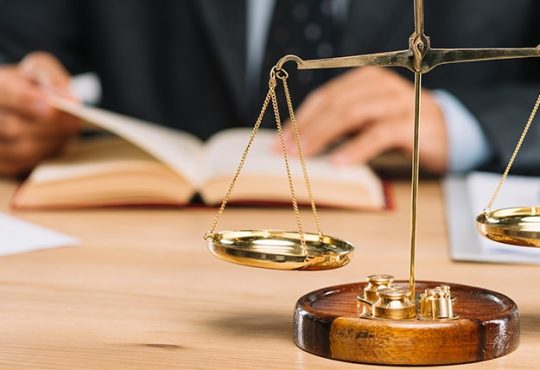
Last year, a federal appeals court ruled that a workers’ compensation attorney was properly suspended by the Pennsylvania Supreme Court for falsely accusing, without evidence, that two workers’ comp judges were communicating with opposing counsel without his presence, known as “ex parte” communication. As a result, this attorney’s license was suspended for five years. His appeal was an attempt to undo or overturn the suspension, but the federal appeals court found that his rights were not violated. In short, you can’t accuse people of misconduct without evidence and expect there to be no consequences. In the words of Omar from The Wire, “If you come at the king, you best not miss.”
This is just one incident of how lawyers and attorneys can lose their license to practice law. There are many other instances where attorneys lose their licenses, most famously and recently would be Rudy Giuliani losing his license to practice as a result of his election denial lies. Those kinds of transgressions are rare. More often than not, attorneys lose their license over more serious, but less “sexy” offenses.
Professional Misconduct
According to the Pennsylvania Disciplinary Board’s Rules of Professional Conduct, attorneys are required to act with reasonable diligence and promptness in representing their clients, maintain competence, and keep clients informed. If an attorney fails to provide competent representation, neglects their case, or fails to communicate effectively, they can have their license suspended or revoked.
Misappropriation of Client Funds
This is the biggest reason attorneys lose their licenses. You don’t mess around with other people’s money. This is a violation so severe that it not only means you lose your license, but you tank your reputation. Attorneys are required to keep client funds separate from their own in trust funds and must provide an accounting of said funds upon request. The Rules of Professional Conduct are crystal clear on this subject. You will be disbarred if you screw with client money. People take this very, very seriously.
Criminal Activity
Fraud, embezzlement, and other crimes involving “moral turpitude” are a great way to lose your license. The American Bar Association (ABA) and Pennsylvania law are clear that attorneys convicted of these serious crimes will be disbarred. Meanwhile, a convicted felon can run for president (for now). These actions undermine public trust in the legal profession. Who wants to trust a criminal lawyer? Not a criminal lawyer, a criminal lawyer. Get me?
Conflict of Interest
This is an overlooked transgression as it isn’t always easy to spot when conflicts of interest arise. This is when an attorney’s obligations to one client are compromised, or are perceived to be compromised, by duties to another client, a third party, or that attorney’s own self interests. Unless they have informed consent from all affected parties, Pennsylvania’s ethical rules require attorneys to avoid these conflicts. Failing to manage any and all conflicts can result in disciplinary actions, including disbarment. When you search “Workers’ Comp lawyer PA” in Google, make sure to check for any potential conflicts of interest.
Dishonesty and Fraud
No one likes a liar. Dishonest conduct such as making false statements to clients, courts, other parties, etc. is grounds for disciplinary action. Examples include fabricating evidence, misleading clients about their case’s status, or misrepresentation or lying about facts to the court. Honesty and integrity aren’t just cornerstones of the legal profession, but a foundation to a productive life. Any deviation from these principles can indeed lead to disbarment.
Substance Abuse
An attorney struggling with substance abuse is unacceptable. That doesn’t mean they’re bad people, but someone dealing with an addiction to a substance is not in the mental or emotional space to be trusted with very serious matters. The legal system offers some leniency, such as support or rehabilitation, as a show of compassion. Failure to work to recover from addiction can result in losing your license to practice law. Pennsylvania Lawyers Concerned for Lawyers provides resources for attorneys struggling with addiction.
Failure to Meet Continuing Education Requirements or Pay Bar Dues
Bet you didn’t know about these rules. Pennsylvania, and the rest of the country for that matter, requires attorneys to complete Continuing Legal Education (CLE) credits every year. Failing to do so can result in administrative suspension. Honestly, this should be more common across industries. We all need to keep our skills sharp, these rules ensure attorneys do just that.
Attorneys also have to pay mandatory bar dues as an administrative requirement that all attorneys must comply with. Failure to pay your dues can get you in trouble. Who knew that attorneys had to pay dues?
Unethical Advertising
When it comes to advertising legal services, there are very strict rules. Making false claims, exploitative, or deviates from law. If you engage in unethical advertising, you can get yourself into some very big trouble. There are guidelines on how attorneys can ethically advertise their services, and frankly, they’re not that difficult to adhere to.
Sticking to Ethical Standards is Imperative
The legal profession is among our most serious of professions and that is seen in its adherence to strict, high ethical standards. Attorneys are entrusted with extremely serious, delicate, and complicated matters with very real consequences for people. Holding them up to high standards is critical to maintaining public confidence in our legal system. In order to do that, the consequences are severe and acts as an effective incentive to do the right thing and act appropriately with honesty and integrity. It’s not perfect, but it works. That Pennsylvania workers’ comp attorney knew better than to make false claims without evidence. He earned his suspended license and so do others who behave as such.




